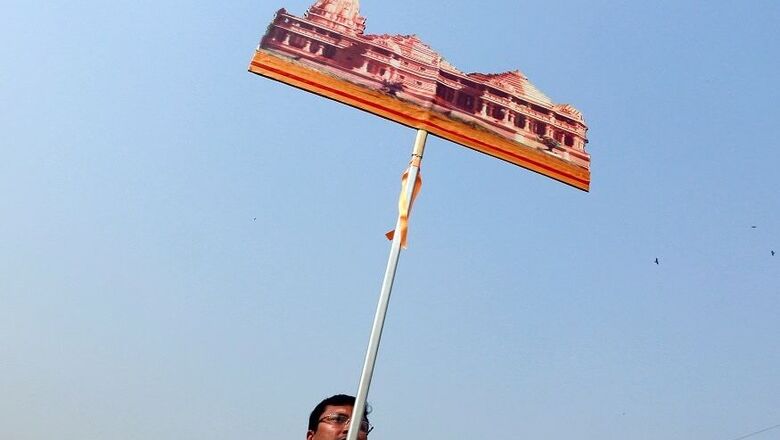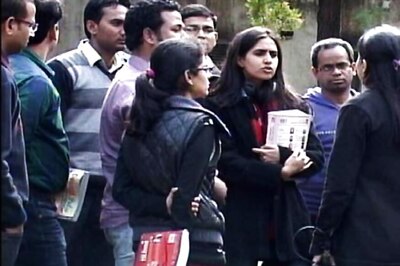
views
New Delhi: The Supreme Court in a unanimous verdict on Saturday cleared the way for the construction of a Ram Temple at the disputed site at Ayodhya, and directed the Centre to allot a 5-acre plot to the Sunni Waqf Board for building a mosque. In one of the most important and most anticipated judgments in India's history, a five-judge bench headed by Chief Justice Ranjan Gogoi put an end to the more than a century-old dispute that has torn the social fabric of the nation.
Here is a look at the operative sentences in the judgment:
1. The Central Government shall, within a period of three months from the date of this judgment, formulate a scheme pursuant to the powers vested in it under Sections 6 and 7 of the Acquisition of Certain Area at Ayodhya Act 1993.
2. Possession of the inner and outer courtyards shall be handed over to the Board of Trustees of the Trust. Possession of the disputed property shall continue to vest in the statutory receiver under the Central Government, issues a notification vesting the property in the trust or other body.
3. Simultaneously, with the handing over of the disputed property to the Trust ... a suitable plot of land measuring 5 acres shall be handed over to the Sunni Central Waqf Board. The land shall be allotted either by: (a) The Central Government out of the land acquired under the Ayodhya Act 1993; or (b) The State Government at a suitable prominent place in Ayodhya;
4. The Sunni Central Waqf Board would be at liberty, on the allotment of the land to take all necessary steps for the construction of a mosque on the land so allotted together with other associated facilities
5. The right to worship at the disputed property is affirmed subject to any restrictions imposed by the relevant authorities with respect to the maintenance of peace and order and the performance of orderly worship.
"The lands of our country have witnessed invasions and dissentions. Yet they have assimilated into the idea of India everyone who sought their providence, whether they came as merchants, travellers or as conquerors," said the verdict.
"The history and culture of this country have been home to quests for truth, through the material, the political, and the spiritual. This Court is called upon to fulfil its adjudicatory function where it is claimed the two quests for the truth impinge on the freedoms of the other or violate the rule of law," it said.




















Comments
0 comment